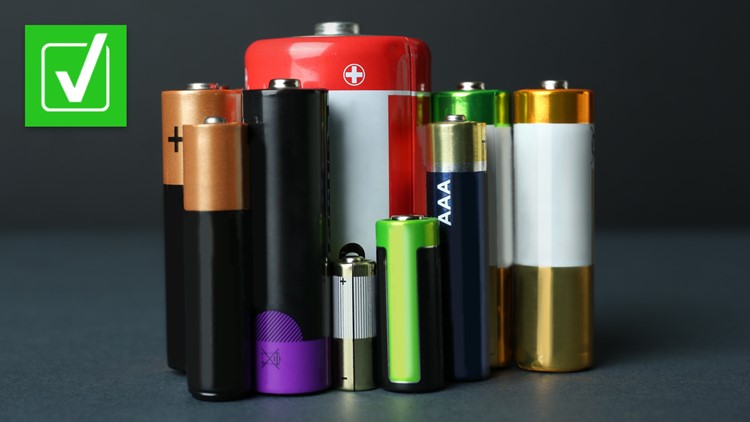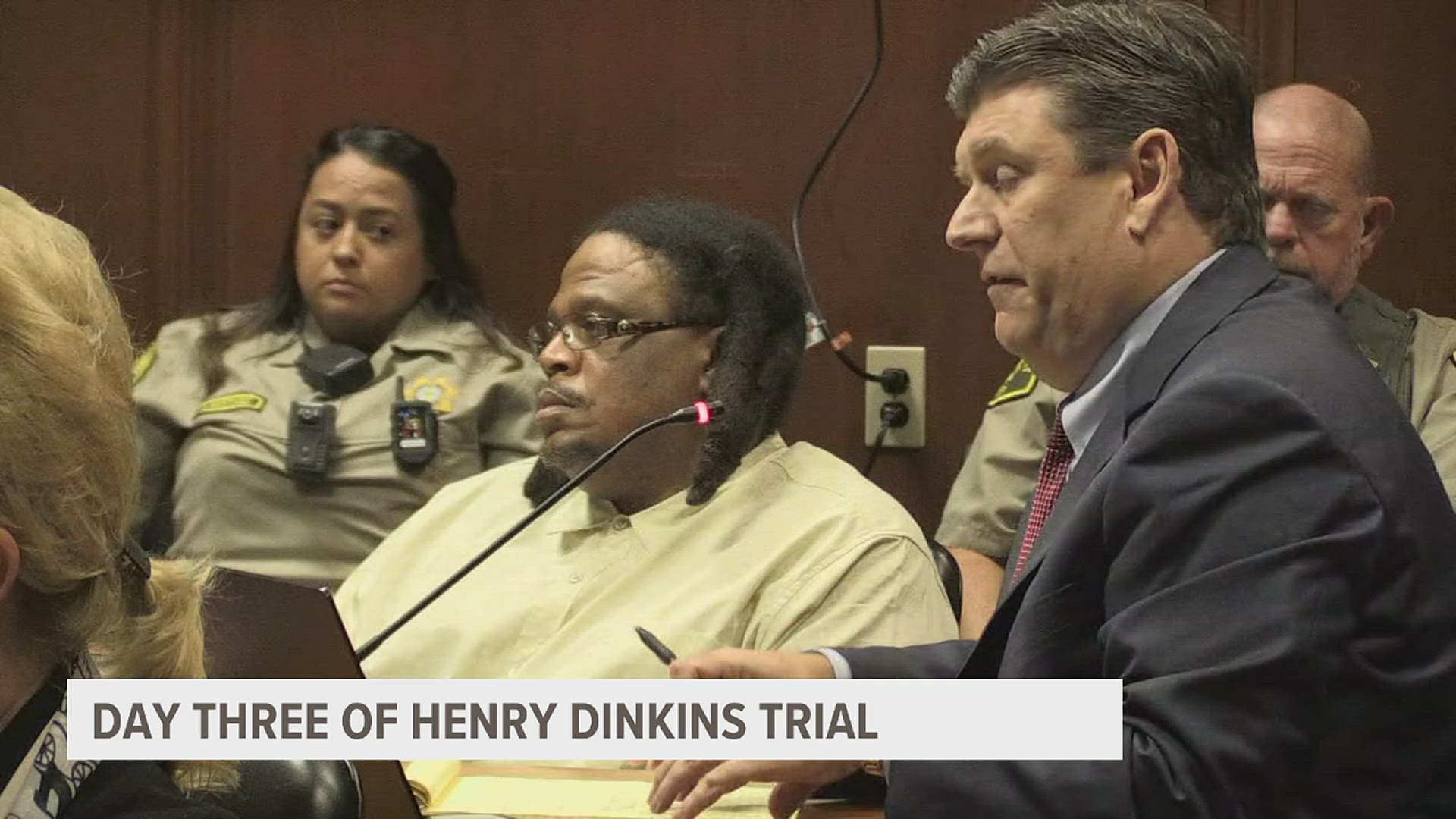We’re constantly using devices, appliances, toys and more that require batteries of all kinds, but especially single-use batteries like AAs and AAAs. But single-use batteries eventually stop working and have to be replaced.
Many batteries are labeled with recycling and trash can symbols that are covered with an X, or have other instructions that may confuse people looking to dispose of them properly. Some VERIFY readers are wondering about how they should dispose of their AA and AAA batteries, with one saying they had heard that throwing them out in the trash is an option.
THE QUESTION
Can I throw most single-use alkaline batteries out in the trash?
THE SOURCES
- Environmental Protection Agency (EPA)
- BatteriesPlus
- The Home Depot
- California’s Department of Resources Recycling and Recovery, more commonly called CalRecycle
- Call2Recycle, a nationwide consumer battery recycling and stewardship program
- Office of the Fire Marshal for Fairfax County, Virginia
- City of San José, California, Environmental Services Department
THE ANSWER
Yes, you can throw most single-use alkaline batteries out in the trash — unless you’re in California, which requires all batteries to be taken to a specialized waste or recycling facility.
WHAT WE FOUND
The Environmental Protection Agency (EPA) says there are three types of single-use batteries: alkaline or zinc-carbon, coin-shaped and lithium. Common batteries such as AAs and AAAs can be alkaline or lithium, but the alkaline versions are far more common. The lithium versions are usually labeled as such on the packaging and are typically more expensive than their alkaline counterparts.
Single-use alkaline and zinc-carbon batteries can be safely put in your household trash “in most communities,” the EPA says. BatteriesPlus and The Home Depot also say that you can throw out alkaline batteries like most AA, AAA and D batteries with your regular household waste.
Congress passed a law in 1996 that phased out the use of mercury in alkaline batteries, making them less of a hazard when disposed of in landfills, the Office of the Fire Marshal for Fairfax County, Virginia, says.
However, alkaline batteries can still short-circuit, overheat or spark once thrown away, creating a fire hazard, the City of San José, California, Environmental Services Department says. The Fairfax County Fire Marshal’s Office says you should take one of the following precautions when throwing out your batteries to reduce the fire risk:
- Place a piece of electrical tape over both ends (+/-) of the battery
- Throw out batteries separately in a sealed plastic bag
- Throw out batteries in their original packaging, sealed with tape
Only one state bans throwing alkaline batteries out into the trash: California. The state's Department of Resources Recycling and Recovery, more commonly called CalRecycle, says all batteries are considered hazardous waste in California when they’re discarded. So the state prohibits throwing any kind of battery into the trash, including single-use AAs and AAAs.
“Batteries are considered hazardous because of the metals and/or other toxic or corrosive materials they contain,” CalRecycle says. “Batteries are potentially a valuable source of recyclable metal.”
Everywhere else, where throwing out alkaline batteries is an option, the EPA still recommends you “send used alkaline and zinc carbon batteries to battery recyclers or check with your local or state solid waste authority.” Batteries contain recyclable metals, some of which may be scarce, the EPA says.
However, you might have few options for recycling single-use alkaline batteries depending on where you live. Some places that accept rechargeable batteries for recycling don’t accept single-use alkaline batteries, or only accept them for a fee, Call2Recycle, a nationwide consumer battery recycling and stewardship program, says.
“Unlike the rechargeable battery program, which is funded by battery and battery-powered product manufacturers, there is currently no national stewardship solution to allow for free recycling of single-use batteries, except in Vermont,” Call2Recycle says. “This means that local household hazardous waste (HHW) and municipal programs that do offer alkaline battery recycling programs could charge a small fee.”
You can find places that let you recycle single-use alkaline batteries using Call2Recycle's drop-off locator tool. You could also check with your local waste management programs to see if they have any drop-off locations for single-use alkaline batteries.
However, just because a battery is AA or AAA, it doesn’t mean you can just blindly throw it away. The EPA says you should not put the lithium versions of these batteries in the trash or municipal recycling bins. Instead, these kinds of batteries should be taken to a drop-off location for recycling. You also shouldn’t put rechargeable AA or AAA batteries in the trash.
Lithium-ion rechargeable batteries may explode or catch fire if punctured or crushed, which can happen at ordinary waste or recycling facilities not specialized to handle batteries, the San José Environmental Services Department says.
In fact, you shouldn’t throw out any kind of battery except for single-use alkaline batteries, meaning you shouldn’t throw out rechargeable batteries, car batteries or most coin-shaped batteries, the EPA says. Most batteries have toxic chemicals that can threaten human health or the environment if improperly handled. You can find places to drop-off these batteries for recycling using Call2Recycle’s locator or using the search on Earth911, which the EPA suggests.



